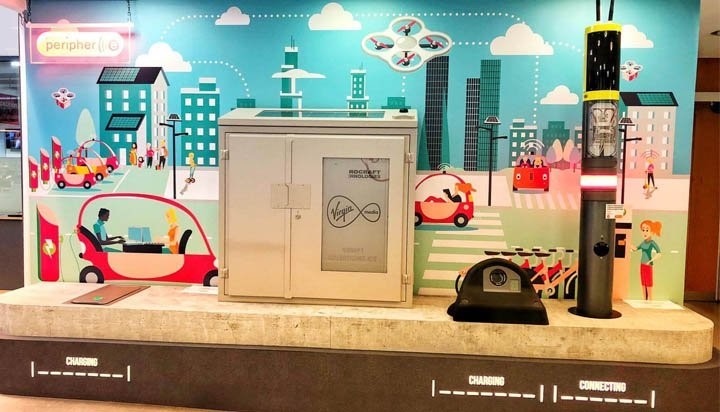
Virgin Park and Charge Phase 2 (VPACH2)
Project
Project Brief
It is estimated that approximately 40% of UK households do not have access to off-street parking at home, most of whom are in urban areas with air quality issues where EVs are most needed.
Current EV adoption in urban areas without off-street parking, which often coincide with less affluent demographics, is typically low and therefore the case for on-street charging is not always commercially attractive. Nevertheless, many local authorities have recognised the social need for charging infrastructure to encourage the electric transition in these regions.
The Virgin Media Park and Charge project (VPACH) will demonstrate at scale an innovative new approach to installing on-street charging solutions for hard to address residential areas using existing street furniture.
Objectives
The VPACH2 project will demonstrate the opportunity to build a fully integrated, scaleable and timely EV charging network for on-street residential parking.
The network will be unique in leveraging existing and widespread communications network assets in Virgin Media’s access network infrastructure of cabinets and ducts as a foundation.
Deliverables
The main project deliverable is to deploy the network of on-street chargepoints across the project’s participating local authorities.
Having been a main partner in the feasibility study and the proposal writing for the phase 2 demonstrator, Cenex has now taken on a research and advisory role with various deliverables which are independent of the main project objective:
- Independent review of four white paper documents authored by partner, Connected Kerb.
- Review and testing of the customer demand model, designed to capture consumer interest in having an on-street chargepoint installed in their neighbourhood. being developed by lead partner, SMS.
- Creation of the MAking CHoices Used for PLanning Investment in Car CHarging Utilities (MACHU PICCHU) model to evaluate the ownership models and business case for investment for public EV charging.
- Deployment of the EVSE Database – a public facing website to provide information on charging hardware for the industry.
- Development of the EV Energy Resource ESTimator (EVEREST) model, used to help local authorities and chargepoint network operators predict the demand for on-street residential EV charging now and as the UK’s private car fleet transitions to electric.